Theresa May on Brexit: Then and nowpublished at 10:34 GMT 18 January 2017
A look back at Theresa May's big Brexit speech - and at what she said before the EU referendum.
Read MoreMay speaks about Brexit at Davos
Says UK to lead world on free trade
Audience is mainly business leaders
IMF's Lagarde warns UK of Brexit pain
UK to trigger EU exit talks by April
Alex Hunt, Jackie Storer and Emma Griffiths
A look back at Theresa May's big Brexit speech - and at what she said before the EU referendum.
Read More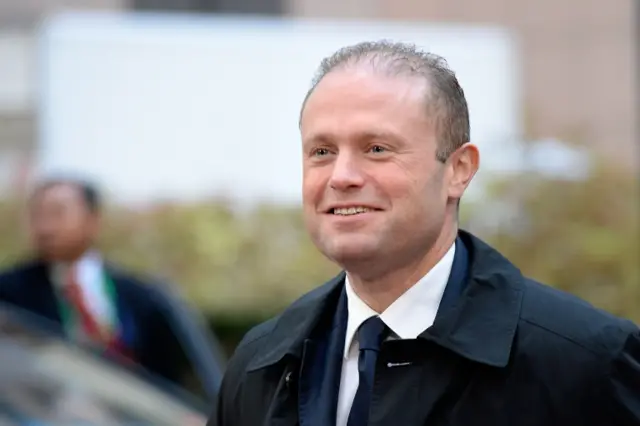 Image source, AFP
Image source, AFPProceedings are under way in the European Parliament in Strasbourg, with Maltese prime minister Joseph Muscat speaking.
This is significant because Malta holds the rotating presidency of the European Council for the next six months.
He says it is an "emotional moment" since the first time he spoke there was nine years ago as an MEP in the Parliament - remarking this was at a time of great optimism for the union not long after Malta's accession in 2004.
He remarks that few people were talking about the "crisis of immigration" back then. Moving to the present day, he says there has been "too much stuttering" from EU countries in their response to the migration flows triggered by the war in Syria and conflict elsewhere around the world.
Exiting the EU Committee
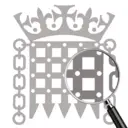 Select Committee
Select Committee
Parliament
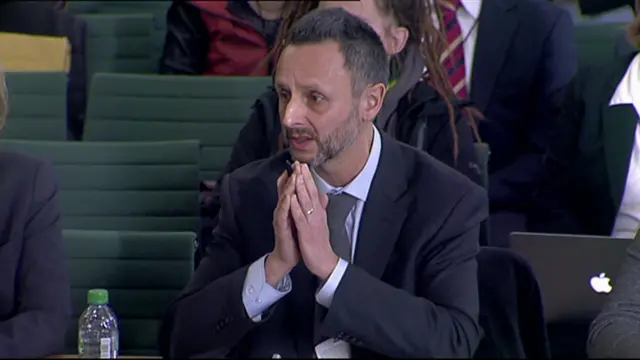
Nicolas Hatton
The SDLP's Mark Durkan asks what is the biggest difficulty in making assurances for EU nationals.
Nicolas Hatton replies that the first difficulty is political, saying that if there had been a declaration on 24 June 2016 that EU nationals' rights would be protected "there would be a climate of certainty" and people would not have felt distressed.
He calls on the UK government to grant rights to remain for EU nationals before negotiations begin, saying "we don't want to be bargaining chips" and arguing that EU nationals have to be treated as human beings.
Anne-Laure Donskoy adds to this that people who live in the UK for five years have these rights, and says that they want confirmation that "we still have our rights".
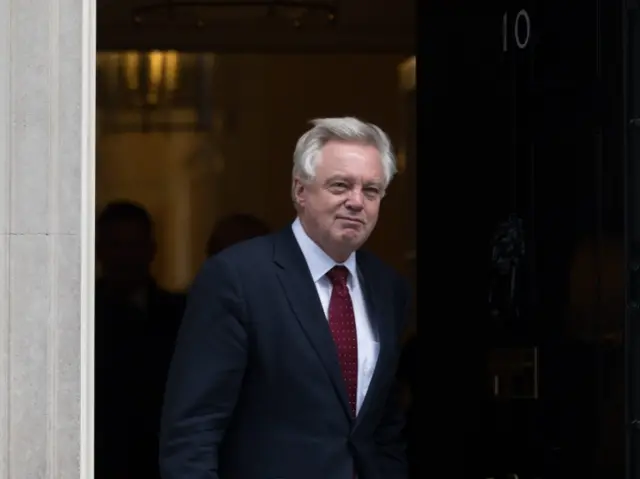 Image source, EPA
Image source, EPABrexit Secretary David Davis has disclosed that he pocketed £1,000 by betting on the UK voting to leave the European Union.
He told LBC Radio that the money was still paying drinks bills at his Department for Exiting the EU.
He was being questioned about a poll which suggested voters did not trust the so-called "three Brexiteers" - Mr Davis, Foreign Secretary Boris Johnson and International Trade Secretary Liam Fox.
Quote MessagePolls are not that reliable. I was in this studio on referendum day with Iain Dale, referendum night, and the polls at that point were telling us there's going to be a 10-point advantage to Remain. So I put some money on, and it's still paying my office's drinks bills. I made a grand."
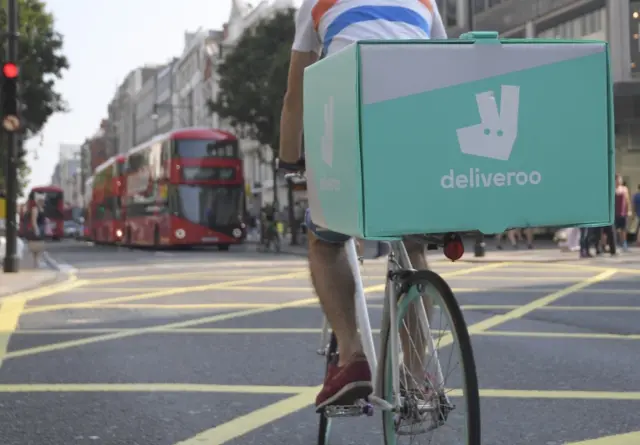 Image source, Reuters
Image source, ReutersAwat from Brexit, but sticking with the economy for a moment, the Green Party has called on Deliveroo to up its game over employment rights before taking on more staff.
This follows the firm's announcement that it plans to hire 300 tech workers in its London office. Read full story.
Jonathan Bartley, the party's co-leader, says the takeaway service firm needed to do more to "look after" its current employees, who he claimed were living in a state of "constant insecurity".
Quote MessageDeliveroo’s riders live in constant insecurity because of the company’s use of bogus self-employment contracts. We are calling on the company to end its use of self-employment contracts and guarantee all staff decent pay, sick and holiday leave and, most importantly, job security.”
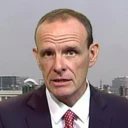 Norman Smith
Norman Smith
Assistant political editor
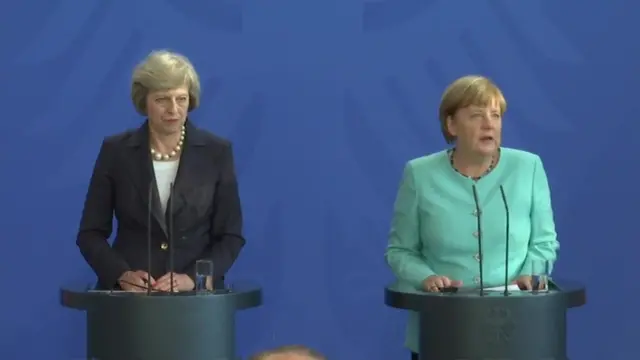 Image source, AFP
Image source, AFPOn the issue of engagement with European leaders, it is worth returning to some of the phone calls Theresa May made in the wake of her speech.
She spoke to Angela Merkel, Francois Hollande, Donald Tusk and Jean-Claude Juncker in quick succession last night.
According to Downing Street, she told the German and French leaders that she wanted the "EU to thrive, understood the importance of the 'four freedoms' of the single market and that the UK would not be seeking membership of the single market".
In her conversations with Mr Juncker and Mr Tusk, Mrs May emphasised why the UK felt it necessary to leave the single market but wanted the greatest possible access to it and that her government also desired a strong and equal partnership with the EU in future.
In response, Mr Juncker welcomed the greater clarity afforded by Mrs May's speech and Mr Tusk expressed his hope that the negotiations would take place in a spirit of goodwill on both sides.
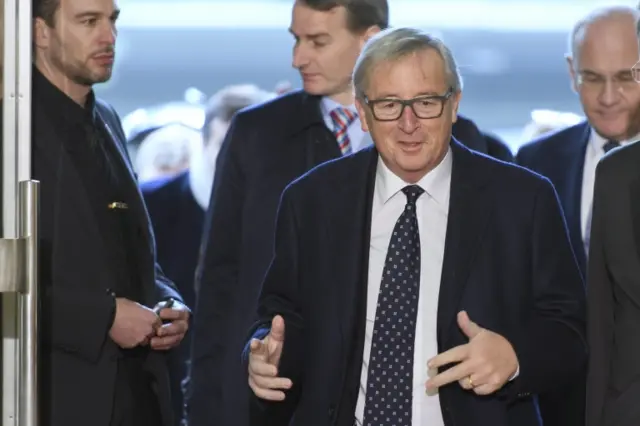 Image source, EPA
Image source, EPATo some extent, the Brexit focus will move to the continent today where European officials and leaders will be giving their reaction.
Jean-Claude Juncker, the president of the European Commission, will be speaking at a plenary session of the European Parliament in Strasbourg this morning as will Maltese President Joseph Muscat.
Mr Juncker will also be taking part in a debate this afternoon on December's summit of EU leaders, as will Donald Tusk - the president of the European Council who is the chief emissary for the other 27 nations.
Concluding a busy day for him, Mr Juncker will make a speech in Brussels this evening at a legal conference, in which he is expected to address the impact of Brexit on the EU and migration challenges.
In Berlin, the German government's Brexit committee will meet for the first time while Chancellor Angela Merkel will meet her Italian counterpart Paolo Gentiloni for bilateral talks.
Brexit Secretary has moved on from the BBC...
Allow X content?
This article contains content provided by X. We ask for your permission before anything is loaded, as they may be using cookies and other technologies. You may want to read X’s cookie policy, external and privacy policy, external before accepting. To view this content choose ‘accept and continue’.
Allow X content?
This article contains content provided by X. We ask for your permission before anything is loaded, as they may be using cookies and other technologies. You may want to read X’s cookie policy, external and privacy policy, external before accepting. To view this content choose ‘accept and continue’.
Allow X content?
This article contains content provided by X. We ask for your permission before anything is loaded, as they may be using cookies and other technologies. You may want to read X’s cookie policy, external and privacy policy, external before accepting. To view this content choose ‘accept and continue’.
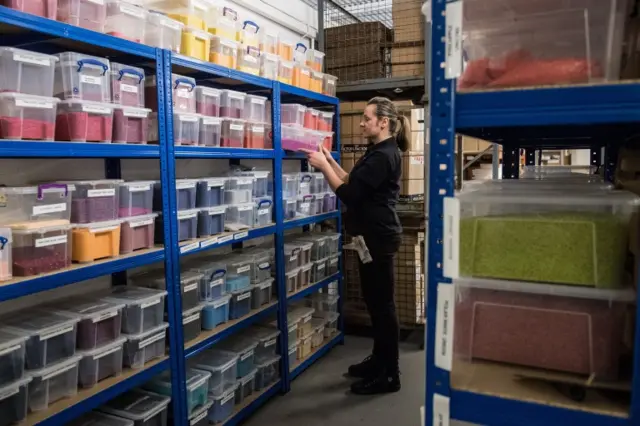 Image source, Getty Images
Image source, Getty ImagesUnemployment fell by 52,000 to 1.6 million in the three months to November, according to official figures just published, while average earnings increased by 2.8% in the year to November. Read the full story
Exiting the EU Committee
 Select Committee
Select Committee
Parliament
Barbara Drozdowicz responds to Liberal Democrat Alistair Carmichael's question about immigration advice being given to EU nationals.
She says that as her organisation is a licensed immigration advice service, she has "serious concerns" about unqualified advice being given to EU citizens, telling the committee that "too much" of this advice is being given for "extortionate fees" by people "who have no idea what they are doing".
The only qualification that many of these people have, she says, is that they can read the form.
Parliamentary reporters tweet
Allow X content?
This article contains content provided by X. We ask for your permission before anything is loaded, as they may be using cookies and other technologies. You may want to read X’s cookie policy, external and privacy policy, external before accepting. To view this content choose ‘accept and continue’.
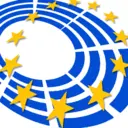 European Parliament
European Parliament
Strasbourg
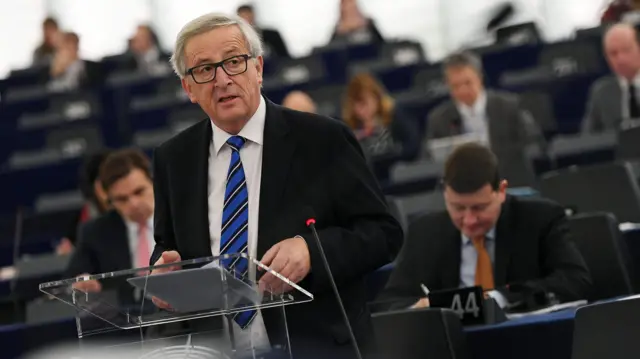 Image source, AFP
Image source, AFPComing up later this morning, EU Commission President Jean-Claude Juncker and Maltese Prime Minister Joseph Muscat are due to speak in a debate with MEPs on Malta’s EU presidency.
There could be some reaction to Theresa May’s speech yesterday, at which she confirmed that she intends to take the UK out of the European single market.
Mrs May said instead she will negotiate a free trade agreement with the EU that will give the UK the “greatest possible access” to the single market.
Guy Verhofstadt, who is the Parliament’s observer at Brexit talks, and leading Brexit-backing Conservative MEP Syed Kamall are also due to speak during the debate.
Exiting the EU Committee
 Select Committee
Select Committee
Parliament
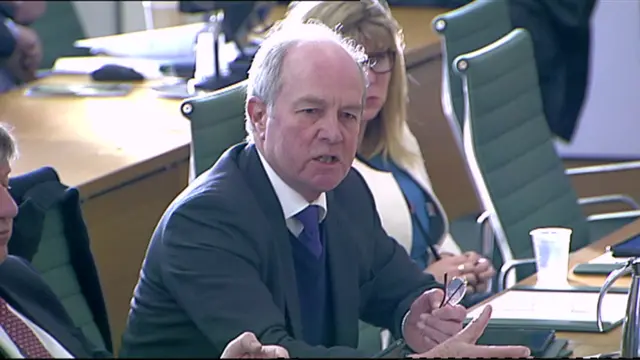
Conservative Peter Lilley asks the panel what pressure they are putting on their home governments to ensure that the rights of UK citizens living in the EU are ensured so as to settle the issue quickly.
Nicolas Hatton responds that his organisation want the UK government to make the first move "because the UK is leaving the EU and not the other way around".
"We live in the UK - our government is the UK government," he says.
Mr Lilley says that UK nationals living in the EU look to the UK government and seems astonished that Mr Hatton has not made any representations to his home government on the issue.
Exiting the EU Committee
 Select Committee
Select Committee
Parliament
Labour's Pat McFadden asks the panel why EU nationals want to come to the UK.
Barbara Drozdowicz says that Britain has "incredibly good press" about opportunities to work, and that the British system allows the development of businesses, which she says is highly regarded and sought after by EU nationals.
It is not as easy to set up businesses in other EU states and to "spread entrepreneurial wings", she says.
Ms Drozdowicz also says that it is "virtually impossible" for EU nationals to claim an abundance of welfare payments - telling the panel that even in the terminal stages of cancer it is very difficult to claim benefits.
"Brexit comes as a shock because people want to know what will happen to their business," she says.
Nicolas Hatton echoes this argument by calling the UK "the country of freedom" - comparing the UK to France where he says he has to carry an ID card.
He also says that benefits in the UK aren't even the best in the EU, suggesting that if someone wants to move country to claim benefits - "move to France".
Exiting the EU Committee
 Select Committee
Select Committee
Parliament
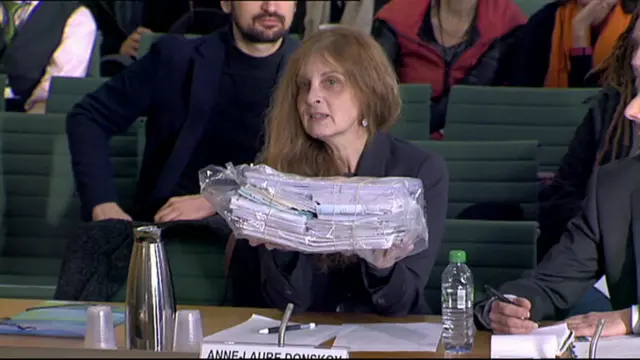
Anne-Laure Donskoy holds up "about half" of her documentation for permanent residence status application
Anne-Laure Donskoy, co-chair of the 3million group, external, talks about the problems and anxieties of EU nationals in applying for permanent residence in the UK following the referendum result.
Ms Donskoy says that she and other EU nationals now feel they are having to justify their right to stay.
She calls the process "a bureacratic nightmare of Kafkaesque proportions" in which unreasonable burden of evidence is put upon the applicant. To prove this she holds up a large package of papers which she says represents about half of the paperwork representing the last five years of her documentation in the UK.
Ms Donskoy says she now faces having to provide 30 years worth of documentation for every time she left the country for more than 24 hours.
"This is unreasonable," she says.
Her colleague from the 3million, Nicolas Hatton, tells the committee that this is why they want a reform of the system.
Exiting the EU Committee
 Select Committee
Select Committee
Parliament
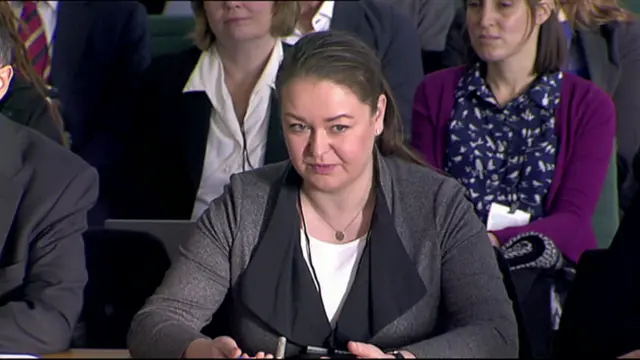
Barbara Drozdowicz says people feel unable to plan
Labour's Stephen Timms asks if some of the issues faced by EU nationals since the referendum have always existed to some extent.
The Chief Executive Officer of the East European Resource Centre, Barbara Drozdowicz, tells MPs that the main difference is the levels of uncertainty since the referendum, saying that people feel they are unable to plan long-term.
This affects people's decisions on whether to invest in businesses, mortgages, and to make educational plans for children, she says.
Exiting the EU Committee
 Select Committee
Select Committee
Parliament
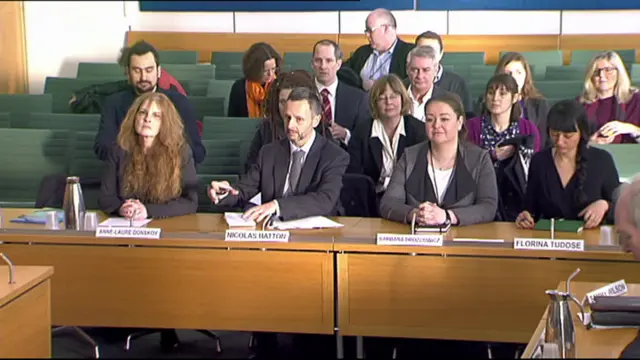
Committee chair Hilary Benn starts the meeting by asking the witnesses about their perception of the atmosphere in the country following the referendum in light of reports of increased hostility towards EU nationals.
Co-Chair of the 3million Anne-Laure Donskoy says that her organisation's online forums show concerns from EU nationals on "a daily basis".
She adds that people feel extremely stressed, and in some cases clinically depressed.
Ms Donskoy adds that the "uncertainty, ambiguity of messages and barely veiled threats of deportation" from Westminster "have not helped".
Ms Donskoy says EU nationals have told her of being "ostracised for no good reason" and of a new sense of isolation since the referendum result.
 Today Programme
Today Programme
BBC Radio 4
David Davis, the secretary of state for exiting the European Union, says negotiations with the EU will conclude after two years as per Article 50.
Mr Davis was keen to stress that the UK is not a "supplicant" in negotiations and that a good deal would benefit both sides. He does admit, however, that implementation of new deals may take significantly longer.
Here's the text of Laura's analysis on BBC Radio 4's Today:
 Laura Kuenssberg
Laura Kuenssberg
BBC political editor
Quote MessageThe Brexiteers in government are delighted but, make no mistake, the government knows it is a risk to take this approach. There is a fine line between ambitions and hopeless optimism. If you were at the speech yesterday, watching the faces and the body language of the EU ambassadors who were all invited along to listen, their reactions ranged from looking sad and devastated to what looked like nausea among some of them. For the government, the appeal of clarity was very strong. They killed off some the accusations that were leveled at them that they did not know what they want and they could not make up their mind. That argument has gone. But this is the beginning of a very long and politically risky process. It is a bit like trying to cross the Himalayas on foot without oxygen or sherpas to carry your gear. It is a bit like Theresa May has made it to the top of the first foothill without too many injuries but if you look at ahead at the summits - in front of her they are enormous and full of jagged rocks. Past prime ministers have foundered on our relationship with the European Union and Theresa May is well aware of that."